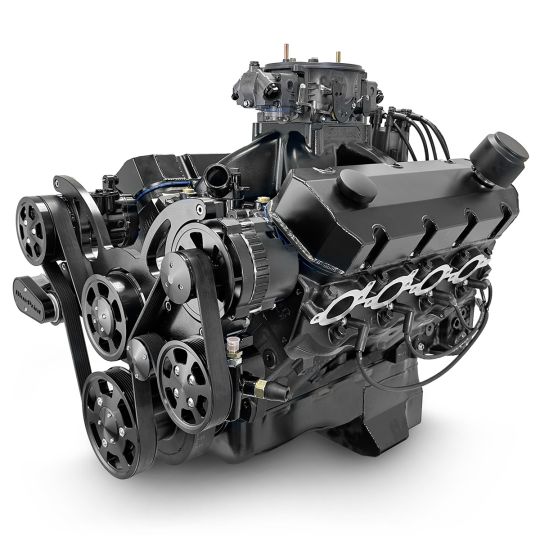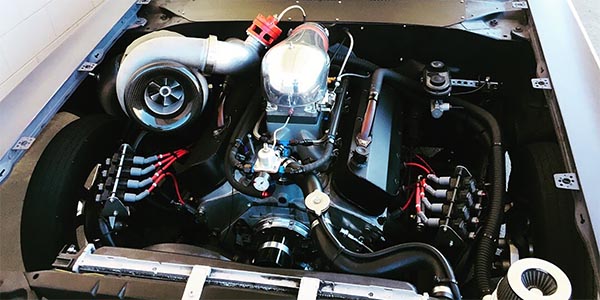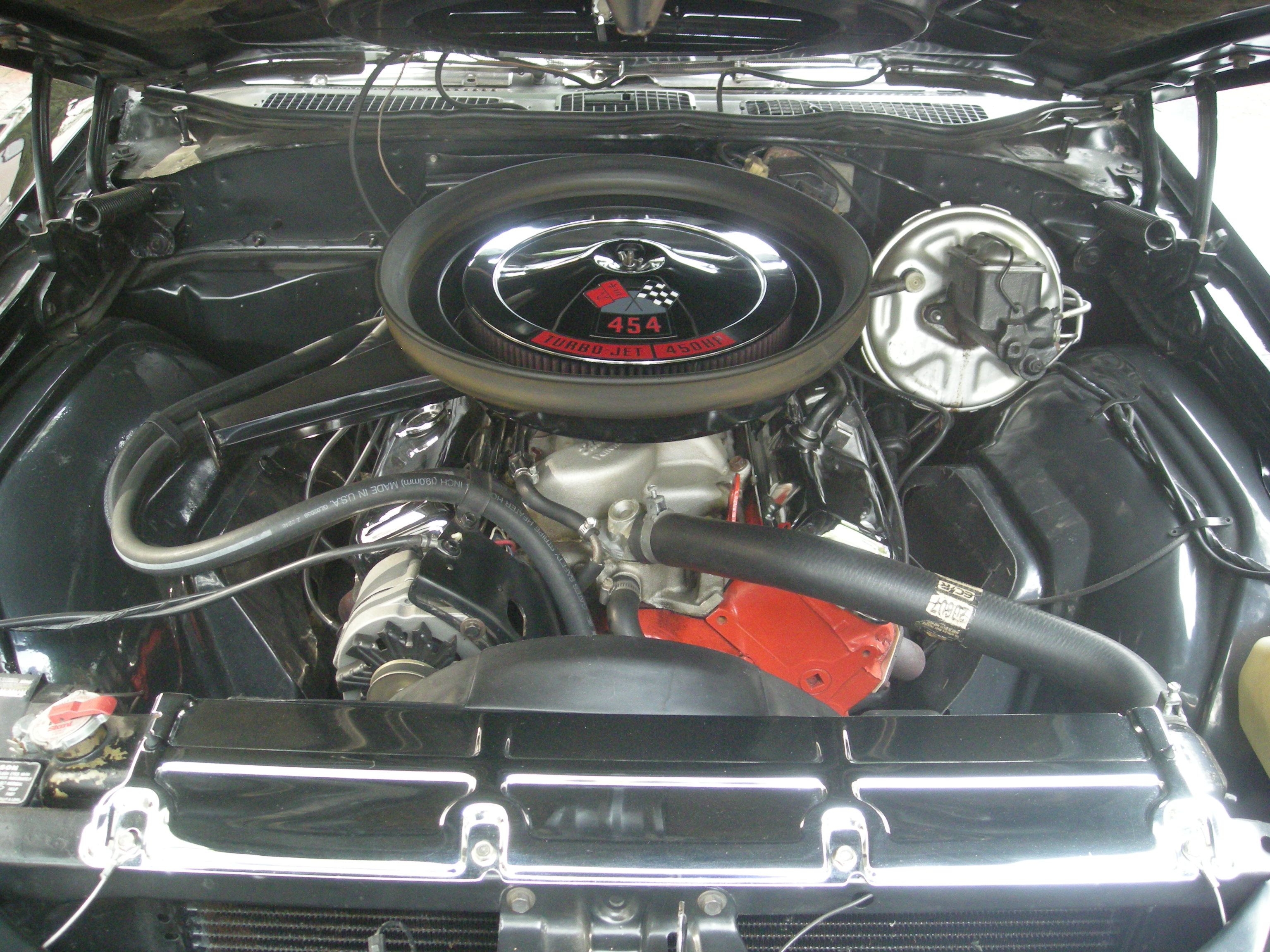The Big Block Chevy Engine is a powerful and popular engine used in various applications. With its large displacement and robust construction, it offers impressive performance and durability.
Boasting a displacement of over 400 cubic inches, the Big Block Chevy Engine delivers exceptional torque and horsepower, making it ideal for heavy-duty vehicles and high-performance applications. Its design features a strong block and cylinder heads, ensuring reliability and longevity.
Additionally, this engine provides ample room for modifications and upgrades, allowing enthusiasts to further enhance its performance. Whether you’re a car enthusiast or a professional in need of a reliable powertrain, the Big Block Chevy Engine is a go-to choice. Its proven track record and versatility make it a favorite among many automotive enthusiasts. Get ready to experience thrilling power and performance with the Big Block Chevy Engine.

Contents
Big Block Chevy Basics
Big Block Chevy engines are a legendary powerhouse in the automotive world, known for their exceptional performance and durability. Understanding the basics of Big Block Chevy engines can provide valuable insight into their historical significance and identifying characteristics.
The Birth of the Big Block
The Chevrolet Big Block engine debuted in the mid-1960s as a response to the growing demand for more powerful engines in both passenger cars and trucks. Its origins can be traced back to the “W-series” engines, which were introduced in 1958 and laid the foundation for the later Big Block designs.
Key Milestones
- 1965 Mark IV Debut: The first true Big Block engine, known as the Mark IV, was introduced in 1965. It featured a new design with improved airflow, higher displacement capabilities, and robust construction. The 396 cubic inch (6.5 L) version was the first to hit the market.
- 427 and 454 Versions: Throughout the late 1960s and early 1970s, Chevrolet expanded the Big Block lineup with larger displacements, including the famous 427 cubic inch (7.0 L) and 454 cubic inch (7.4 L) engines, which became legendary for their performance and power.
- LS7 and Other Variants: High-performance versions like the LS7 (not to be confused with the modern LS7 small-block) were developed, offering even more power and efficiency for racing and performance applications.

Specifications and Variants
The specifications and different variant of big block Chevy engine are discussed below –
Basic Architecture
The Big Block Chevy engine is characterized by its large bore spacing, robust construction, and high displacement capabilities. Here are some key specifications:
- Bore Spacing: 4.84 inches
- Deck Height: 9.80 inches (tall deck versions are 10.20 inches)
- Valve Layout: Overhead valve (OHV) with 2 or 4 valves per cylinder
- Material: Cast iron or aluminum blocks and heads
Popular Variants
- 396 (L78 and L34): Introduced in 1965, the 396 cubic inch version was available in various power levels, with the L78 producing 425 horsepower.
- 427 (L72, L88, ZL1): The 427 cubic inch engine became famous in both street and racing applications. The L88 and ZL1 versions were particularly notable, with the ZL1 being an all-aluminum engine used in limited production cars like the 1969 COPO Camaro.
- 454 (LS5 and LS6): The 454 cubic inch engine, introduced in 1970, was one of the largest and most powerful Big Blocks. The LS6 version produced 450 horsepower, making it one of the most potent engines of its time.
- 502 and 572 Crate Engines: In recent years, Chevrolet Performance has offered Big Block crate engines, such as the 502 and 572 cubic inch versions, providing modern reliability and extreme power for enthusiasts and racers.
Performance Potential
Most significant performance of big block Chevy engine are shown below –
Stock Performance
Even in stock form, Big Block Chevy engines are known for their impressive torque and horsepower. The high displacement and robust construction allow for significant power output, making them popular choices for muscle cars, trucks, and drag racing.
Modifications and Upgrades
The Big Block Chevy engine is highly modifiable, with a vast aftermarket offering performance parts and upgrades. Common modifications include:
- Cylinder Heads: Upgrading to high-flow aluminum heads can significantly improve airflow and power.
- Camshaft: A performance camshaft can enhance valve timing and lift, resulting in better power and torque.
- Intake and Exhaust Systems: Upgraded intake manifolds and headers can improve air and exhaust flow, leading to more power.
- Forced Induction: Adding a supercharger or turbocharger can dramatically increase power output by forcing more air into the engine.
Achieving High Horsepower
With the right combination of parts and tuning, Big Block Chevy engines can achieve extremely high horsepower levels. It’s not uncommon to see streetable Big Blocks making over 600 horsepower, while dedicated race engines can exceed 1,000 horsepower.
Applications of Big Block Chevy Engine
Most popular applications of big block chevy engine –
Classic Muscle Cars
The Big Block Chevy engine has powered some of the most iconic muscle cars in history, including:
- Chevrolet Chevelle SS: The 454 LS6 Chevelle is one of the most revered muscle cars of all time.
- Chevrolet Camaro: High-performance versions like the COPO Camaro with the ZL1 engine are legendary.
- Chevrolet Corvette: The 427 and 454 Big Blocks were available in the Corvette, providing incredible performance.
Trucks and SUVs
Big Block engines were also popular in Chevrolet trucks and SUVs, where their torque and power were beneficial for towing and heavy-duty applications.
Racing
Big Block Chevy engines have a storied history in drag racing, NASCAR, and other forms of motorsports. Their robust construction and high displacement make them ideal for racing applications.
Maintenance and Reliability
Regular maintenance increase the longevity of the engine.
Regular Maintenance
Maintaining a Big Block Chevy engine involves regular oil changes, proper cooling system upkeep, and routine inspections of the ignition and fuel systems. Given their high performance, these engines require diligent maintenance to ensure longevity.
Common Issues
- Cooling: Big Blocks generate significant heat, making an efficient cooling system essential. Upgrading to a high-capacity radiator and ensuring proper coolant flow can prevent overheating.
- Oil Leaks: Given their age, some Big Block engines might develop oil leaks. Regular inspection and replacing gaskets and seals as needed can mitigate this issue.
- Fuel Consumption: Big Block engines are not known for fuel efficiency. Ensuring the carburetor or fuel injection system is properly tuned can help optimize fuel consumption.

Frequently Asked Questions
Here are FAQs about the big block Chevy engine –
What Is A Big Block Chevy Engine?
A Big Block Chevy Engine refers to a powerful V8 engine manufactured by Chevrolet that features a larger displacement, high torque, and is commonly used in heavy-duty vehicles and performance cars.
How Does A Big Block Chevy Engine Differ From A Small Block?
While both Big Block and Small Block Chevy Engines are V8 engines, Big Blocks have a larger displacement, heavier weight, and higher power output compared to Small Blocks, making them suitable for heavy-duty applications and high-performance vehicles.
What Are The Advantages Of A Big Block Chevy Engine?
Big Block Chevy Engines offer several advantages, including increased horsepower and torque, improved towing capacity, better durability, and the ability to handle high-performance modifications. These engines are ideal for applications that require power and performance.
Can A Big Block Chevy Engine Be Used In A Street Car?
Yes, a Big Block Chevy Engine can be used in a street car. However, it’s important to consider factors such as vehicle weight, suspension, and drivetrain components to ensure proper integration and performance. Consulting with a professional mechanic is recommended for a successful installation.
How Do I Maintain A Big Block Chevy Engine?
To maintain a Big Block Chevy Engine, regular maintenance is essential. This includes oil changes, spark plug replacements, air filter cleanings, and cooling system checks. Additionally, monitoring fluid levels, inspecting belts and hoses, and addressing any issues promptly will help keep the engine running smoothly and prolong its lifespan.
Conclusion
The Big Block Chevy Engine stands out for its power and reliability. From its impressive performance to its durability, this engine is a favorite among car enthusiasts. Its versatile applications make it a top choice for many vehicle projects. Upgrade your ride with the Big Block Chevy Engine today!